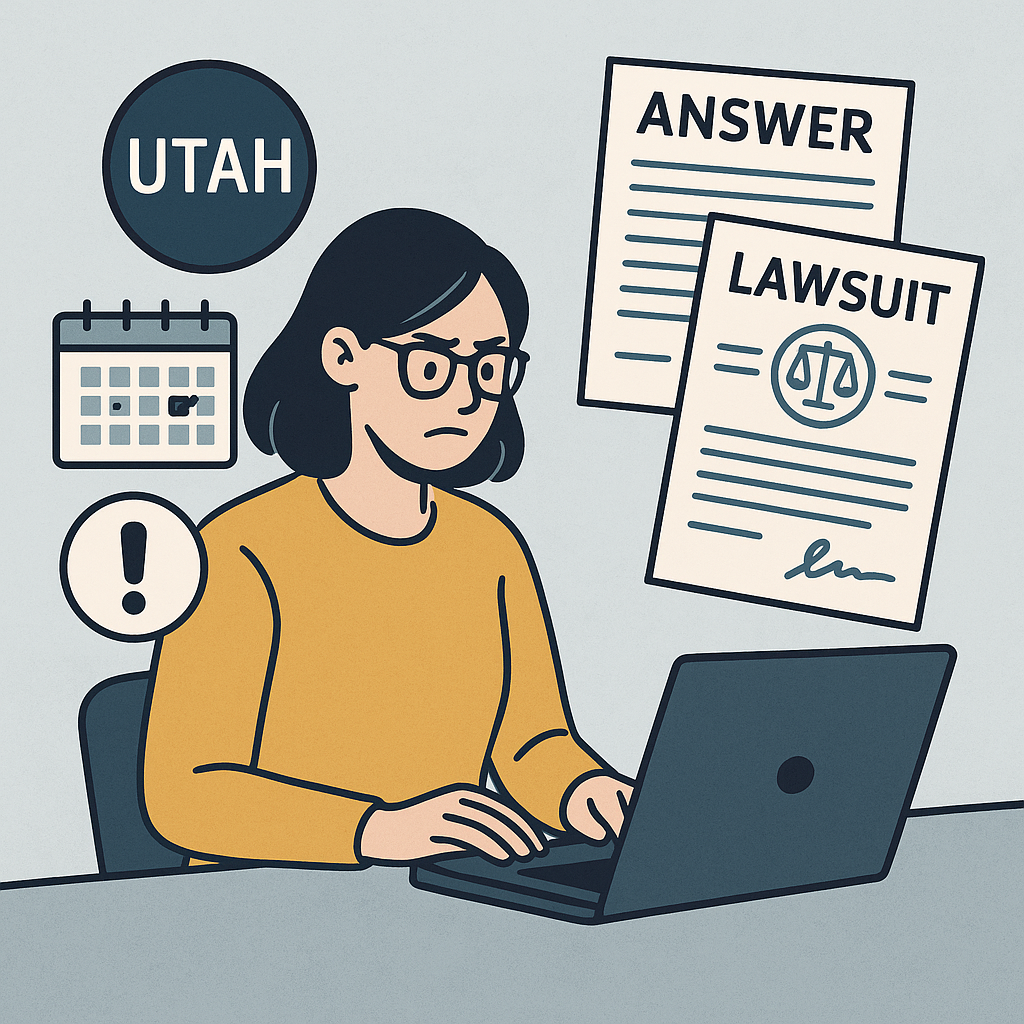How Do I Answer a Debt Collection Lawsuit in Utah?
Deadlines, filing steps, common defenses, and what happens next
Introduction. Getting sued for a debt can feel overwhelming, but you have real options if you act fast. This guide shows how to respond, file your Answer on time, and use Utah law to protect your rights. Missing your deadline can lead to an automatic default judgment, so knowing what to do first matters most.
What Happens When You’re Sued
You will receive a Summons and a Complaint. The Summons tells you that you’ve been sued and sets your response deadline. The Complaint lists what the collector claims you owe and why.
Read every page carefully. Confirm the court name, case number, and deadline. Utah small claims cases are typically under $15,000; larger amounts go to district court. Your Answer is filed with the same court named on the Summons.
Answer Deadlines in Utah
Deadlines depend on how you were served. If you ignore the Summons, the collector can request a default judgment, which can lead to wage garnishment or asset seizure.
How to File Your Answer
You can file online through the Utah Courts’ OCAP system or in person at the courthouse on your Summons.
Small claims Answers are generally free to file; district court may charge a small fee.
Common Defenses in Utah Debt Cases
- You don’t owe the debt or it belongs to someone else.
- The amount is wrong or inflated by fees or interest.
- The debt is too old (Utah statute of limitations is generally 4 years for written contracts).
- Improper service or lack of notice.
- You already paid or settled.
What Happens After You File
The case can move into discovery, where both sides exchange documents. Many cases settle through payment plans or lump-sum agreements once you’ve filed your Answer and show up.
If there’s no settlement, expect a pretrial hearing or trial date. Track all court notices and attend every hearing. Missing a court date can still result in a judgment.
Settling Instead of Going to Trial
Collectors often negotiate after you answer. If you settle, get the terms in writing before paying. Confirm the case will be dismissed with prejudice after payment so it cannot be refiled.
Video & Social Learning Hub
YouTube: Answering Debt Lawsuits
Instagram: Utah Debt Basics & Stories
Need Help Applying This to Your Case?
Filing your Answer on time keeps you in control. If you’re unsure about defenses or next steps, a Utah consumer or civil attorney can help you game-plan a smart response.
Talk to a Utah AttorneyFor more plain-English legal guidance, follow Utah Law Explained, read our About page, or connect with trusted counsel like Gibb Law Firm.
